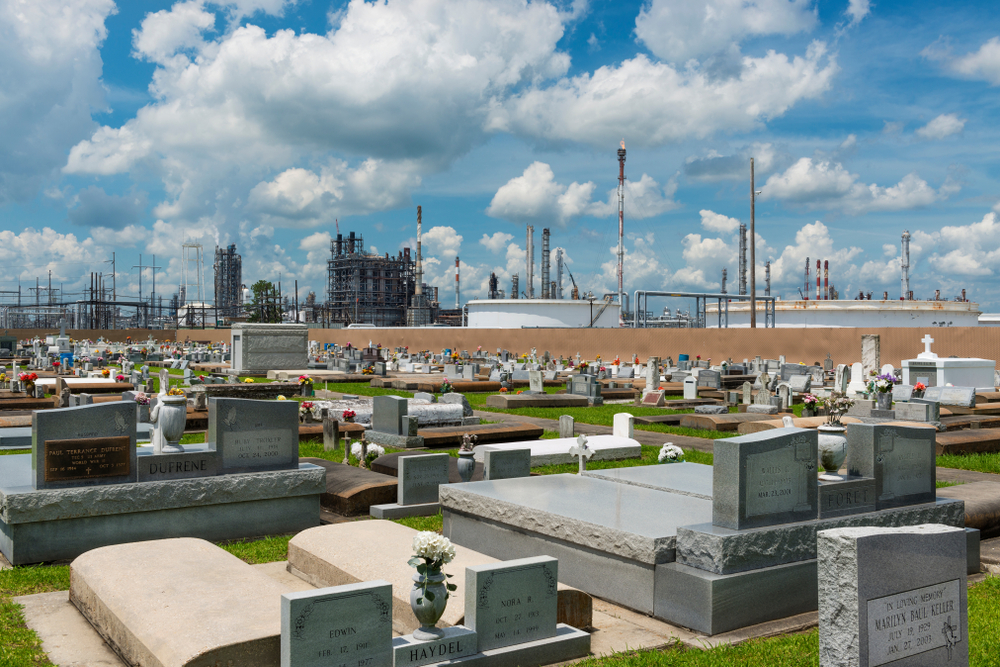Baton Rouge District Judge Trudy White recently vacated air permits for the Formosa Petrochemical Corp.’s proposed plastic and petrochemical plant in Louisiana’s infamous industrialized “Cancer Alley,” so named because of the high rates of cancer suffered by the predominantly African-American residents.
Environmental and citizen advocacy groups challenged the permit approval decision for Formosa’s controversial Sunshine Project by the Louisiana Department of Environmental Quality (LDEQ) in federal court.
In the case RISE St. James et al. v. LDEQ, the judge ruled state regulators used “selective” and “inconsistent” data, and “because the agency’s environmental justice analysis showed disregard for and was contrary to substantiated competent evidence in the record, it was arbitrary and capricious. And for these reasons, the actual balance of costs and benefits struck by LDEQ was arbitrary, and clearly gave insufficient weight to environmental protection. Thus, it is this Court’s responsibility to reverse.”
Taiwanese-based Formosa’s proposed $9 billion complex comprised 14 separate plants that were to use ethane and propane as feedstock to make ethylene and propylene and ultimately a variety of products used in plastics manufacturing.
“The company’s own modeling shows that when the chemical complex would operate, the air in parts of St. James Parish would violate the [EPA’s] national, health-based limits for soot and ozone-forming nitrogen dioxide,” states a Center for Biological Diversity press release. “Inhaling the predicted, excessive concentrations of either pollutant, even for short periods, could produce breathing disorders like asthma attacks and chronic obstructive pulmonary disease.”
White’s ruling is the latest blow to what would become the world’s largest plastic and plastic feedstock production facility if it were to be approved.
In August 2021, a full environmental review of the Sunshine Project was ordered by the U.S. Army after determining that the original project assessment did not properly weigh the health impact to the surrounding communities, Reuters says.
“The new review could take years,” adds Reuters. “Formosa Plastics said in an email the Sunshine Project was the responsibility of Formosa Petrochemical Corp, in which the company holds a 29% stake, and referred questions to them. Formosa Petrochemical did not immediately respond to a request for comment.
“Nikki Reisch, director of the climate & energy program at the Center for International Environmental Law, said the decision sends a clear message to companies that they cannot ignore the voice of local communities when proposing major fossil fuel projects.”
The environmental and community advocacy groups in the lawsuit included Rise St. James, the Louisiana Bucket Brigade, the Sierra Club, the Center for Biological Diversity, Healthy Gulf, Earthworks, and No Waste Louisiana.
“Stopping Formosa Plastics has been a fight for our lives, and today David has toppled Goliath,” said Sharon Lavigne, founder and president of RISE St. James. “The judge’s decision sends a message to polluters like Formosa that communities of color have a right to clean air, and we must not be sacrifice zones.”
“This decision is the nail in the coffin for Formosa Plastics. They won’t build in St. James Parish, and we will make sure that they won’t build this monster anywhere,” said Anne Rolfes, director of the Louisiana Bucket Brigade. “Louisiana state officials and the local parish government rolled out the red carpet for this megapolluter, doing everything in their power to make sure this project would go through. Thank God for the people of St. James who stood up and provided real leadership, for the judge who made this decision, and for the incredible team of lawyers.”

